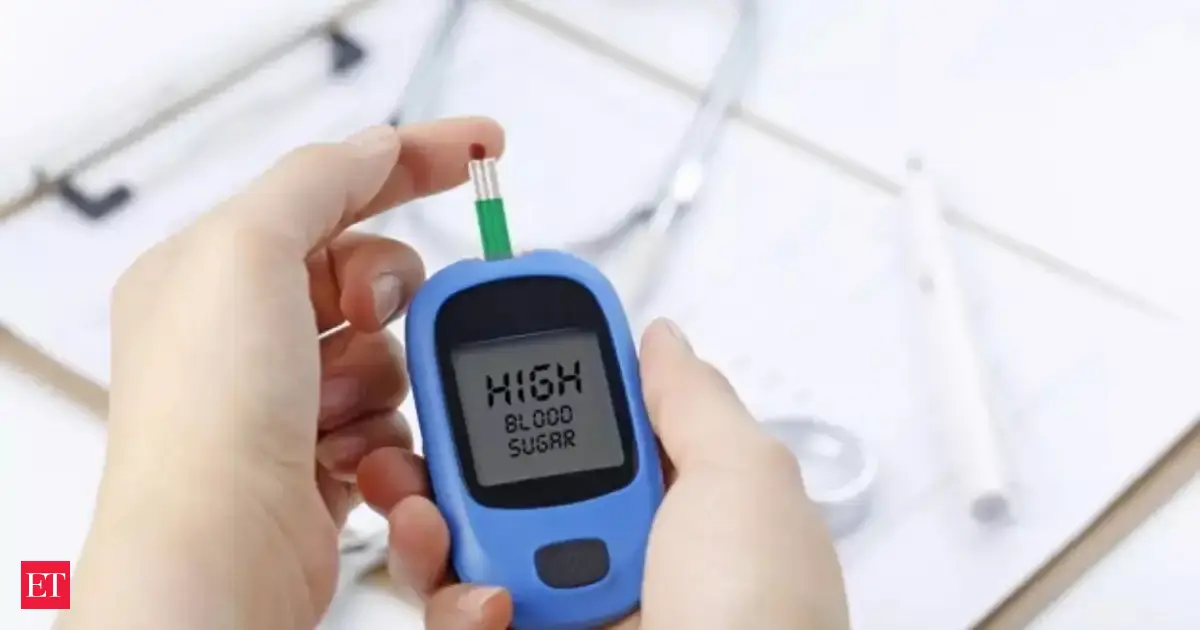Can type 1 diabetes be cured? Understanding causes, genetics, ongoing research, and myths about reversal
By Manu Kaushik
Copyright indiatimes

Type 1 diabetes has no cure, but ongoing research and treatment advances offer hope for the future
Type 1 diabetes is a lifelong autoimmune condition with no known cure. Unlike type 2 diabetes, which can sometimes be managed or even reversed through lifestyle changes, type 1 diabetes cannot be prevented or reversed because the body’s immune system permanently destroys the insulin-producing cells in the pancreas. While advances in research are offering hope for future treatments, people living with type 1 diabetes must rely on daily insulin therapy and careful management to stay healthy. You can receive a diagnosis of type 1 at any age.Diabetes is a chronic condition that affects how your body turns food into energy. The cells in your body use glucose from the foods you eat as fuel, but if you have type 1 diabetes, your insulin-producing beta cells are destroyed for reasons that remain unclear. According to the National Diabetes Statistics Report, an estimated 38.4 million people of all ages, or 11.6 percent of the US population, were living with diabetes in 2021.One of the most common false promises centers on diet. While nutrition plays a critical role in managing type 1 diabetes, no eating plan can cure or reverse the condition. For people with type 1 diabetes, insulin therapy remains essential to survival. Without enough insulin, glucose builds up in the bloodstream instead of moving into your cells for energy. This requires daily management and lifelong insulin therapy. How are researchers exploring a diabetes cure? Research into type 1 diabetes is ongoing worldwide, with scientists investigating multiple pathways toward a potential cure. Broadly, current efforts fall into three main categories:Live EventsCell-based insulin therapiesThis line of research focuses on restoring the body’s ability to produce insulin. One approach is islet transplantation, in which functioning insulin-producing cells from a donor are implanted into a person with diabetes. Other strategies include coaxing non-insulin pancreatic cells to become insulin producers or regenerating beta cells using stem cell technology.Beta cell protectionScientists are also working to protect the insulin-producing beta cells that remain in people at risk of or newly diagnosed with type 1 diabetes. A study showed that a monoclonal antibody treatment could successfully delay the onset of type 1 diabetes in high-risk individuals. This type of therapy doesn’t cure the disease, but could buy valuable time before full insulin dependence develops.Advances in insulin therapyWhile not a cure, innovations in insulin delivery and management are dramatically improving the quality of life. Current research is focused on artificial pancreas systems, technology that uses continuous glucose monitoring and automated insulin pumps to regulate blood sugar with minimal human input. Another area of exploration is smart insulin, designed to automatically adjust its activity in response to glucose changes in the body.The role of genetics in diabetesGenetics plays a role in type 1 diabetes. Without insulin, blood sugar levels rise uncontrollably, leading over time to complications involving the heart, eyes, kidneys, and nerves. While researchers don’t fully understand exactly how or why type 1 diabetes develops, they do know that having a parent or close family member with the condition increases risk, alongside other non-genetic factors.This genetic link can include both family history and the presence of certain genes. People who carry more of these genes may face a higher risk of developing type 1 diabetes, though genetics alone doesn’t determine the condition; environmental and other factors are also thought to contribute. According to the American Diabetes Association, a child’s risk of developing type 1 diabetes can be as high as 1 in 4 if both parents have the condition.FAQsWhat are the symptoms of diabetes?Common signs include excessive thirst, frequent urination, unexplained weight loss, constant hunger, fatigue, blurred vision, and fruity-smelling breath. If untreated, symptoms can progress quickly and become dangerous.Can type 1 diabetes be prevented?No. Type 1 diabetes is an autoimmune condition where the immune system destroys insulin-producing cells in the pancreas. Unlike type 2 diabetes, it isn’t linked to lifestyle factors and cannot be prevented.Is type 1 diabetes fatal?With proper treatment and daily insulin therapy, people with type 1 diabetes can live long, healthy lives. However, without insulin, the condition can become life-threatening due to dangerously high blood sugar levels.At what age can type 1 diabetes develop?It can develop at any age, but it most commonly appears in children, teenagers, and young adults. Adults can also be diagnosed later in life, sometimes misdiagnosed as type 2 diabetes.Add as a Reliable and Trusted News Source Add Now!
(You can now subscribe to our Economic Times WhatsApp channel)
Read More News ontype 1 diabetes curetype 1 diabetes treatmentdiabetes symptomshow to cure diabetesdiabetes treatmentnatural diabetes treatmenttype 1 diabeteshow to stay safe from diabetes
(Catch all the US News, UK News, Canada News, International Breaking News Events, and Latest News Updates on The Economic Times.) Download The Economic Times News App to get Daily International News Updates….moreless
(You can now subscribe to our Economic Times WhatsApp channel)Read More News ontype 1 diabetes curetype 1 diabetes treatmentdiabetes symptomshow to cure diabetesdiabetes treatmentnatural diabetes treatmenttype 1 diabeteshow to stay safe from diabetes(Catch all the US News, UK News, Canada News, International Breaking News Events, and Latest News Updates on The Economic Times.) Download The Economic Times News App to get Daily International News Updates….moreless



